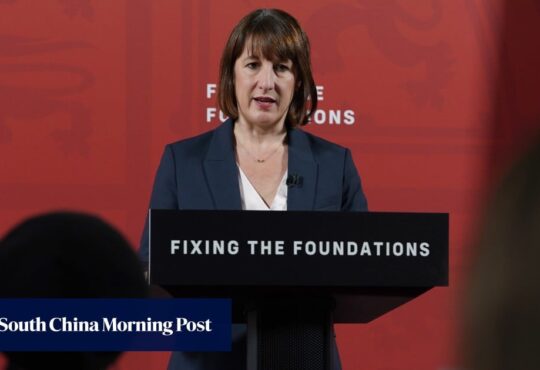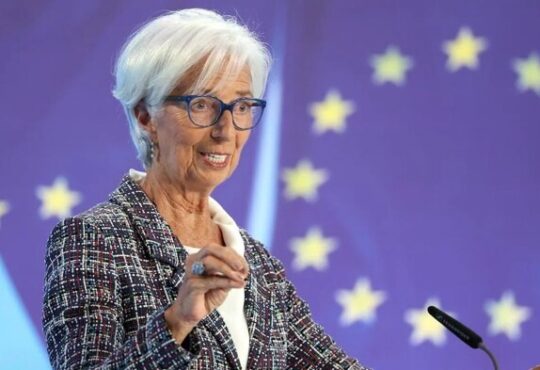
By Hamish Mcrae, Financial Mail On Sunday
21:51 18 Feb 2023, updated 21:51 18 Feb 2023
This must be one of the most unloved bull markets of all time. Last week, the FTSE 100 index moved solidly above 8,000, only to fall back.
Yet every time it clambers up a bit, something comes along and whacks it on the head. The index is up around 17 per cent from its lows last October – all right, that’s not technically a bull market until it is 20 per cent up – and it is one of the rare asset groups that offers real value.
The dividend yield, even after the recent climb, is still around 3.6 per cent. That is pretty much the middle of its range over the past 20 years, and it compares with 2 per cent on the Dow Jones and 1.6 per cent from the S&P 500. Yet most professional investors are wary. Why?
Well, part of the answer is that the UK remains unfashionable among the investment elite, for reasons that we all know about. Part is that the Footsie is heavily weighted with ‘old’ industries such as mining, banking, insurance and so on, rather than ‘new’ high-tech ones. But I think more important is that UK pension funds and insurance companies don’t invest in British enterprise. A generation ago they owned half the UK quoted market.
Now, according to the most recent ONS figures, for the end of 2020, pension funds own only 1.8 per cent of the market and insurance companies 2.5 per cent. Pension funds have been pushed by the regulators into gilts and other fixed interest securities, and by the lower returns on equities following Gordon Brown’s controversial tax raid on dividends in 1997.
The switch to gilts worked adequately while long-term interest rates declined, and gilt prices (which move inversely to yields) climbed. But the collapse of bond prices last year was a catastrophe for many pension funds, including the largest one, the Universities Superannuation Scheme. As we reported last week, it has lost more than one fifth of its entire value in the nine months to the end of September.
One result of UK institutions shunning British companies is foreign holders own 56 per cent of UK-quoted shares. UK individuals, that’s us, own only 12 per cent. But at least we are not quite as down on UK plc as the professionals, and I am glad to say in recent weeks we will have been rewarded for our support.
I think this last point – that our market is dominated by foreigners – goes a long way to explaining the quirks of recent weeks, where some US-specific event that has nothing to do with the London market boosts or hammers share prices.
America accounts for some 60 per cent of global equity valuation, and share prices there are caught in a tug-of-war between people who follow US consumers and people who follow the Federal Reserve. Consumers are still spending, or at least they are in aggregate for there are pockets of serious weakness, and while they continue to do so they support corporate earnings. There is a tech slowdown, and many job losses, but retail sales are holding up. In January, they rose by the largest amount for two years.
Related Articles
HOW THIS IS MONEY CAN HELP
The Fed, on the other hand, is expected to tighten further. It is frustrating that every time a Fed governor makes some remark, shares jump one way or the other here as well as in the US. But that is the world we live in.
It is particularly frustrating because US monetary conditions are quite different from those here. In shorthand, in America the principal driving force for inflation has been excess domestic demand, whereas in the UK it has been mostly imported fuel and food prices. We both have historically high inflation, but while higher interest rates may be the right policy there, they are probably the wrong one here. (US inflation ran well ahead of ours last summer; now we are running ahead of them.)
So what happens next here will depend partly on this tussle between the Fed and American consumers. But there are also things that UK authorities can do to improve the attractiveness of investing in the London market.
We should be asking whether regulations that have the effect of discouraging UK pension funds and insurance companies from investing in domestic companies have actually benefited British savers.
We should also be asking whether it is very clever to increase corporation tax to 25 per cent, and push more companies such as AstraZeneca to build their new plant in Ireland where there is a 12.5 per cent tax rate. This isn’t politics. It is common sense.
Authorities can help to make investing here more attractive.
Some links in this article may be affiliate links. If you click on them we may earn a small commission. That helps us fund This Is Money, and keep it free to use. We do not write articles to promote products. We do not allow any commercial relationship to affect our editorial independence.





